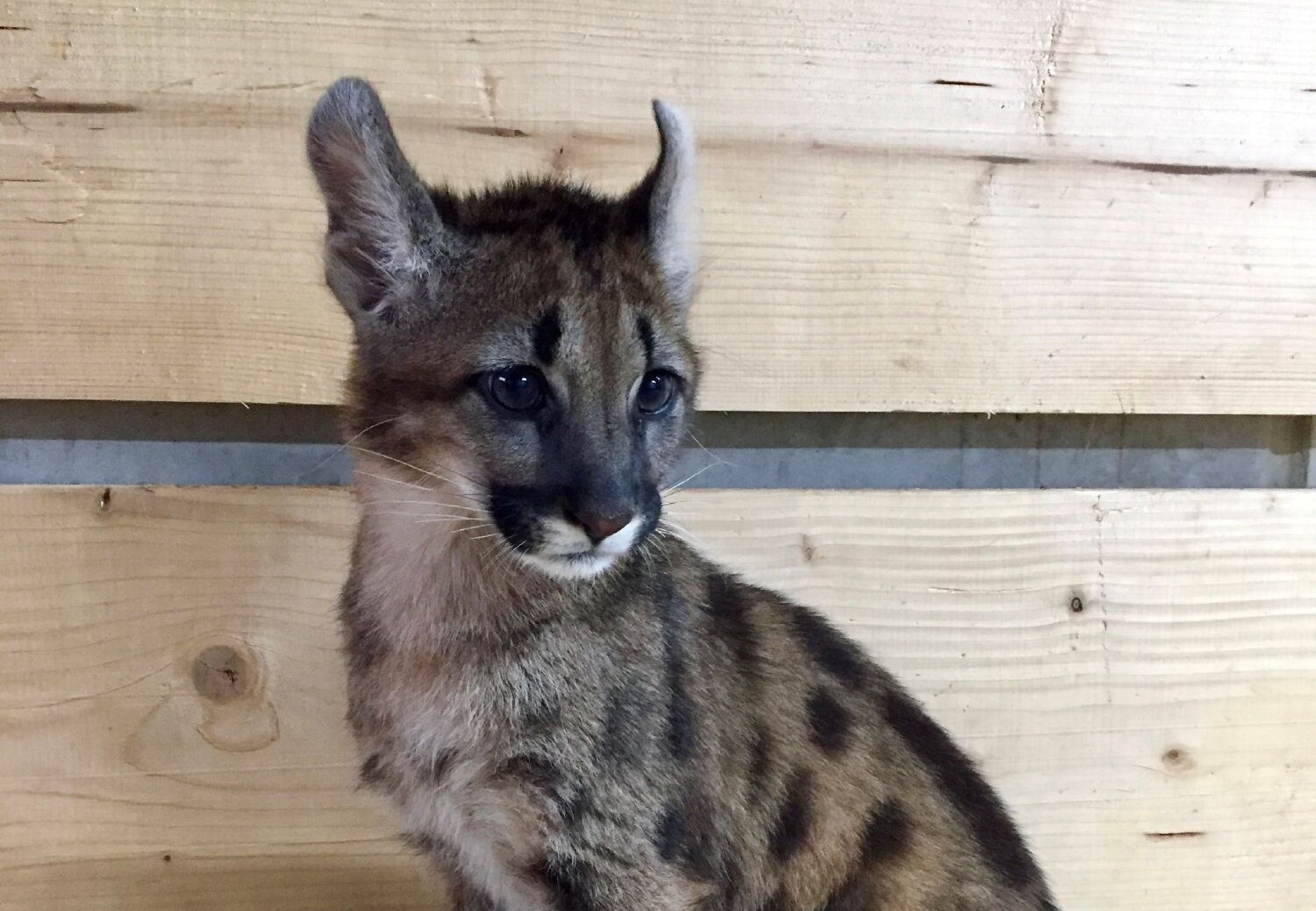
Bizarre discovery in Germany: Puma cub kept in apartment
FOUR PAWS provides sanctuary for cub victim of wild cat trade in Europe
Shortly before Christmas 2018, authorities discovered and confiscated a male puma cub in a private apartment in the German city of Lahr. The then two-month-old exotic pet was legally bought in the Czech Republic but illegally smuggled into Germany. The international animal protection organisation FOUR PAWS has taken the cub named Tikam into its care and will place him – after a period in quarantine – in its big cat centre, TIERART.
Tikam's sad case is yet another example of how Europe’s legal trade in tigers and other cat species overlaps with illegal activity. FOUR PAWS aims to stop such activities through a campaign calling for a ban on commercial trade.
The owner of the property where the puma was being kept drew the attention of authorities to the unusual pet. The young puma was purchased from a Czech breeder for 2,300 Euros and brought to Germany by car. The buyer, however, had no permit to keep the puma, or to export and import documents allowing for the transfer of the animal from the Czech Republic into Germany. Furthermore, it was revealed that papers showing the animal's vaccination record and origin were deficient.
At TIERART, the young puma will find a new, species-appropriate home after being released from quarantine. It is impossible to release the puma into the wild, as Tikam has been exposed to intensive human contact and would not be able to survive alone.
The EU: a paradise for illegal wildlife smugglers
Tikam’s story is yet another bizarre example of how easy it is to purchase exotic wildlife in EU countries and smuggle these animals into other EU states. This is due to insufficient controls and inadequate legislation in the EU.
Putting an end to the big cat trade
Since breeding and trading tigers is legal in many EU countries, the region has developed into a hub for the big cat trade, especially the trade in tigers and tiger products.
“There isn’t a lot of up-to-date information on how many wild and big cats are kept in countries like Germany and nobody really knows how many big cats are being kept in living rooms or backyards. The current legal situation is beyond deficient and has led to countless animals being kept in absolutely inappropriate circumstances. Moreover, the amateur handling of and attitude towards wild animals also pose a danger to other humans and animals,” says Harkin.
FOUR PAWS calls on the European Commission to introduce stricter regulations and ban commercial trade in tigers and other cat species once and for all.
FOUR PAWS press contact

Elise Burgess
Head of CommunicationsM: 0423 873 382
FOUR PAWS Australia
GPO Box 2845
SYDNEY NSW 2001
Main Phone: 1800 454 228
Follow us on social media
Stay up to date on this topic and on all FOUR PAWS activities on our social media channels:
About FOUR PAWS
FOUR PAWS is the global animal welfare organisation for animals under direct human influence, which reveals suffering, rescues animals in need and protects them.
Founded in 1988 in Vienna by Heli Dungler and friends, the organisation advocates for a world where humans treat animals with respect, empathy and understanding. The sustainable campaigns and projects of FOUR PAWS focus on companion animals including stray dogs and cats, animals in fashion, farm animals, and wild animals – such as bears, big cats, and orangutans – kept in inappropriate conditions as well as in disaster and conflict zones.
With offices in Australia, Austria, Belgium, Bulgaria, France, Germany, Kosovo, the Netherlands, Switzerland, South Africa, Thailand, Ukraine, the UK, the USA, and Vietnam as well as sanctuaries for rescued animals in eleven countries, FOUR PAWS provides rapid help and long-term solutions. www.four-paws.org.au

